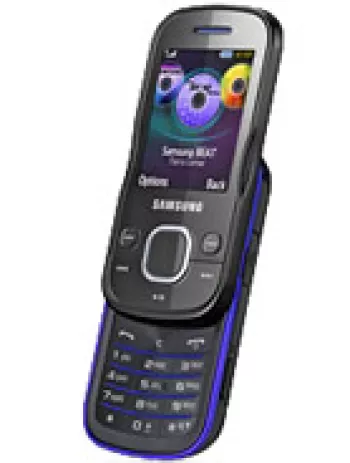
Overview of the Samsung E715
The Samsung E715, released in the early 2000s, represents an era of mobile technology that prioritized compact design and essential functionality. This device was introduced in Q3 of 2003 and has since been discontinued, but its impact on the mobile phone market is worth revisiting. As a feature phone, the E715 served basic communication needs while also introducing some multimedia functionalities that were groundbreaking at the time.
Design and Build
The Samsung E715 boasts a compact and stylish clamshell design. Measuring 90 x 45 x 23 mm and weighing just 85 grams, the phone was extremely portable, fitting conveniently into pockets and small bags. The sleek design came in various colors, including Indigo Blue, Metallic Silver, Beaujolais Red, and Pearl White, providing options for users with different tastes.
Display Quality
The device featured a TFT color display with a resolution of 128 x 160 pixels, capable of showcasing 65K colors. Despite the relatively small screen by today's standards, this display was adequate for viewing contacts, messages, and the few integrated games. Samsung cleverly optimized the display for clear visibility, given the limited size, which was standard for feature phones of that era.
Camera Functionality
The Samsung E715 was equipped with a VGA camera, a significant feature for a phone at the time. The camera offered a resolution of 0.3 megapixels and included an LED flash, a rarity in devices back then. Although the image quality cannot compete with modern standards, the camera was a novelty and a significant selling point allowing users to capture spontaneous moments.
Battery Life
One of the highlights of the E715 was its robust battery life. It housed a removable Li-Ion 800 mAh battery. Under optimal conditions, it offered up to 230 hours of standby time and up to 3 hours of talk time. This long battery life was essential, particularly at a time when charging ports were not as ubiquitous as they are now.
Network Technology
The phone operated using GSM technology, covering 2G bands at 900 and 1900 MHz. This ensured vast coverage for users across different regions. The inclusion of GPRS Class 10 allowed for basic data browsing, which complemented its WAP 2.0/xHTML browser capabilities, albeit limited compared to what we expect from phones today.
Storage and Memory
In terms of memory, the Samsung E715 was designed with a focus on the essentials. It lacked a card slot for additional storage, reflecting the reduced need for extensive data storage at the time. The internal memory facilitated the storage of contact information, with a phonebook capable of holding 1000 entries, each with up to 6 fields. Call records were limited but manageable, with storage for 20 dialed, 20 received, and 20 missed calls.
Sound and Multimedia
For notification and entertainment, the E715 supported downloadable polyphonic ringtones. Despite not having a built-in loudspeaker or a 3.5mm jack, it was equipped for vibration alerts and boasted a selection of five games, including "Go!Hamster" and "Honey Ball." The inclusion of Java allowed for the addition of other compatible applications and games, enhancing its multimedia utility.
Communication Features
In terms of communication, the phone supported SMS, EMS, and MMS, broadening the scope of data messaging available to the user beyond basic text. This support was crucial as multimedia messaging was gaining traction as a preferred way of communication. The E715 also featured an infrared port, which provided limited data exchange capabilities with compatible devices, circumventing the lack of Bluetooth and USB connectivity which were not standard features at the time.
Additional Features
Despite its simplicity, the Samsung E715 included several essential utilities such as a clock and an alarm. These features highlighted Samsung's commitment to providing added value even in its more straightforward models. For the gaming enthusiasts, the inclusion of games with Java support ensured that the device could be used for both productivity and leisure.
User Experience and Legacy
The Samsung E715 forged a legacy defined by its dedication to making technology both accessible and practical for everyday users. It captured the heart of a transitional period in mobile technology, standing between the era of basic feature phones and the dawn of smartphones. While the phone did not boast the connectivity or the extensive functionalities of modern devices, its robust build, reliable performance, and groundbreaking camera features made it a beloved device of its time.
In conclusion, the Samsung E715 was a forerunner in mobile technology, providing users with the ability to capture images, send multimedia messages, and enjoy a range of games and applications. Its compact design, strong battery life, and essential features make it a noteworthy piece in the history of mobile technology development.
Key Features of Samsung E715
- Compact and Lightweight Design: Dimensions of 90 x 45 x 23 mm and weight of 85 g.
- TFT Display: Supports 65K colors with a resolution of 128 x 160 pixels.
- Photography: VGA main camera with LED flash.
- Memory: Phonebook capacity of 1000 contacts with photo call feature.
- Infrared Port: Enables wireless data transfer.
- Messaging: Supports SMS, EMS, and MMS.
- Java Support: Allows running of Java-based applications and games.
- Battery Life: Removable Li-Ion 800 mAh battery with up to 230 hours standby time and up to 3 hours talk time.
- Color Variants: Available in Indigo Blue, Metallic Silver, Beaujolais Red, and Pearl White.
Disadvantages of Samsung E715
- No EDGE support for faster data connectivity.
- Discontinued model, no longer available new.
- No expandable memory card slot.
- Camera limited to VGA resolution and no video capability.
- No front-facing selfie camera.
- No loudspeaker for hands-free audio.
- No 3.5mm headphone jack.
- Limited communication features: no WLAN, Bluetooth, or GPS.
- No built-in FM radio.
- Relatively short talk time of up to 3 hours.

View Also
More Phones
All Rights Reserved +14266 Phones © Mobilawy 2025

























